A nation of many seasonal holidays and poignant occasions, Japan celebrates Christmas and the New Year quite differently from the West. Let’s learn more about the Japanese holiday season, including adopted foreign customs and traditional, historically significant practices, alongside a few other Japanese annual festivities worth exploring.
Celebration all the same: Still holidays, but for different reasons
Traditions being re-interpreted is part of the joy of our global community. While Christmas is a family holiday with a religious focus in the West, in Japan it becomes a joyous time to celebrate love and friendship over Western food and desserts.
Conversely, while the New Year is a big party across the Western world, in Japan and most of Asia, it’s a quiet time of reflection and preparation for another year of good fortune and success. We hope you can appreciate these cultural nuances on your next trip to Japan.
The magical build up to Christmas in Japan
As an adopted holiday, Christmas has similar yet re-interpreted traditions in Japan, and either December 24 or 25 are celebrated mostly by exchanging presents between couples on romantic dates, while friends gather for dinner parties. Fried chicken is the most popular dish, and different varieties of delectable Christmas Cake can be found on dessert tables.
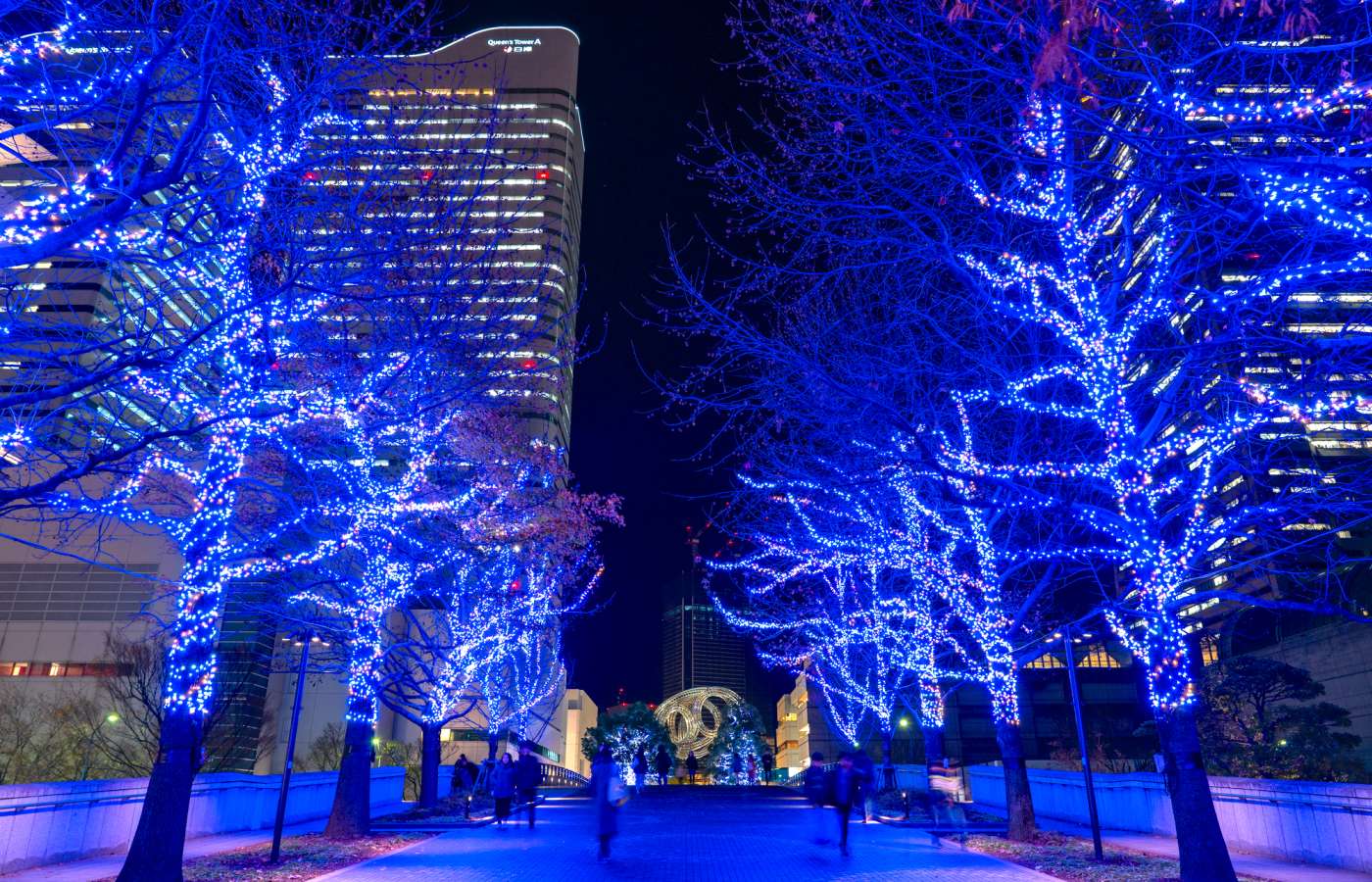
Christmas light “illumination” is common in Japanese cities
Christianity has deep roots in Japan, and although only 1% of the country practices the religion today, Christmas has taken strong hold here. It’s not an official national holiday, but decorations and Christmas trees go on sale as early as October, and visitors will find displays of merry cheer everywhere in the weeks leading up to December 25.
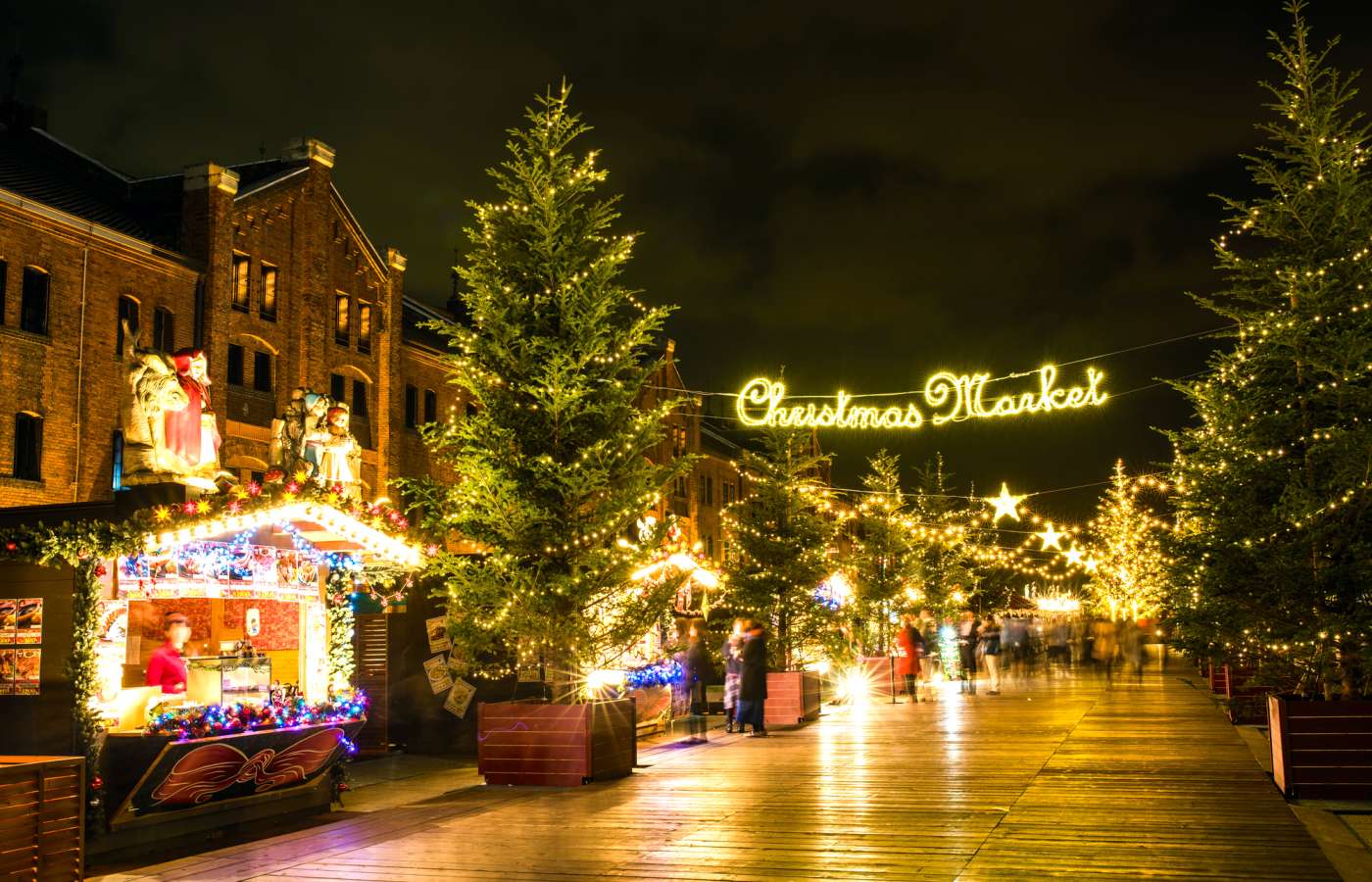
Christmas lights, or festive “illumination ” displays as they’re called in Japanese, are very popular as well, alongside Christmas markets featuring seasonal cuisine and skating rinks. On your next visit to Japan, grab a bucket of fried chicken, get ready to eat some cake and prepare for the magical ride that is Christmas in Japan!
Marking the New Year with family and tradition
The atmosphere leading up to New Year's Eve and New Year’s Day in Japan is very tranquil and calm. The New Year is the most important annual holiday in Japan, and as companies go on holiday for about a week, families gather during this time to enjoy each other’s company, eat spectacular meals and soak up restful days.
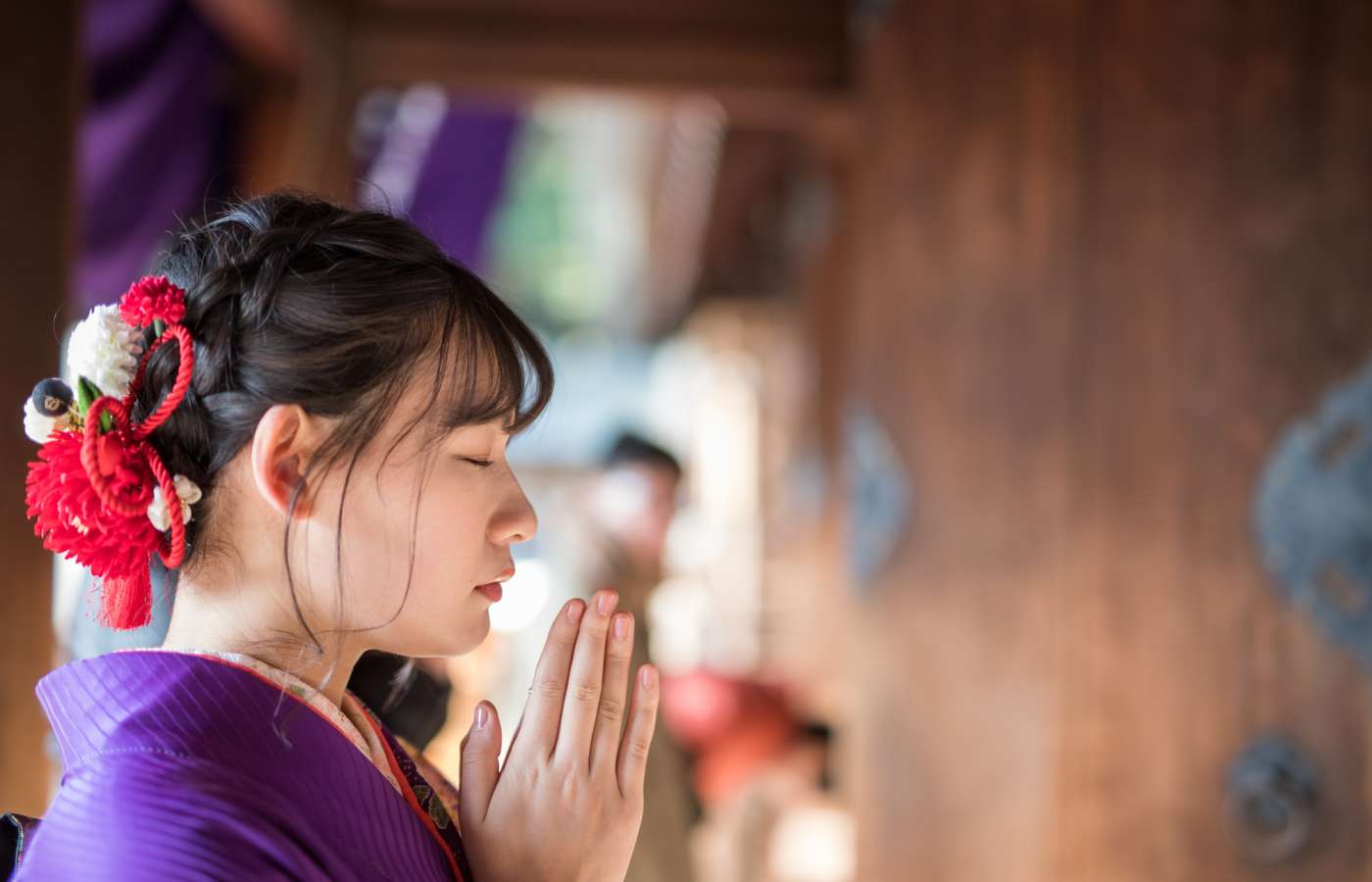
On New Year’s Eve, Japan has also adopted countdown parties and champagne toasts, but the majority of people either stay cozy at home or brave the cold winter for their first shrine visit of the year after midnight on January 1. In Tokyo, trains run all night on New Year’s Eve alone each year to accommodate the number of passengers observing this tradition. (This once-a-year special train service is currently suspended due to the extended effects of the coronavirus pandemic.)
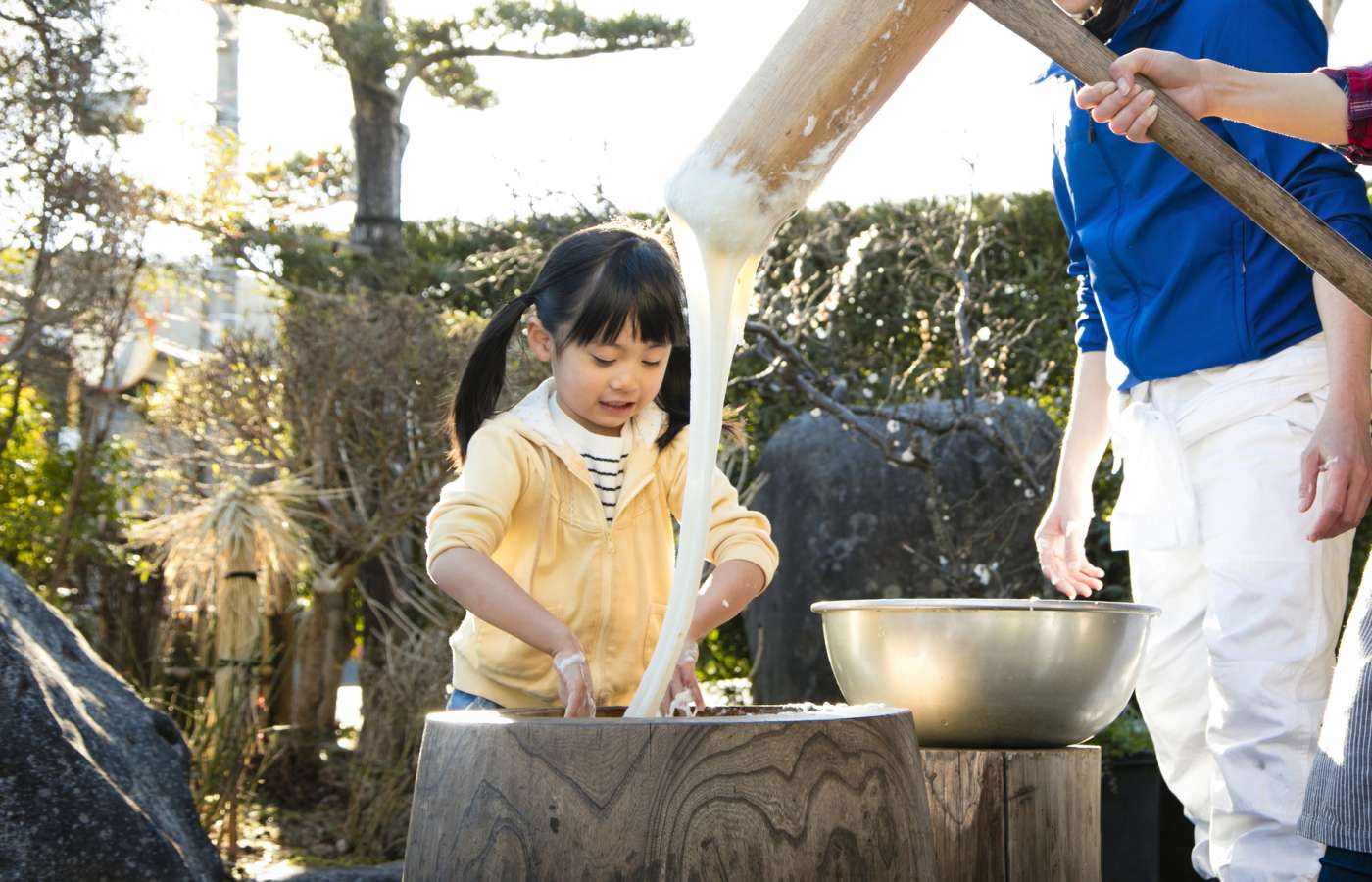
Other New Year’s traditional include: pounding mochi rice cakes with a large wooden hammer in a wooden mill, known as “mochi-tsuki,” drinking a herbal and medicinal variety of sake called “otoso,” eating meticulously prepared Japanese delicacies in a traditional three- or four-tiered bent -box known as “osechi,” including auspicious foods like chrysanthemum turnips, pickled lotus root, shiitake mushrooms, salmon roe and fish cakes, and giving out small cash gifts—mostly for children—known as “otoshi-dama” or “Near Year’s cash,” and more!
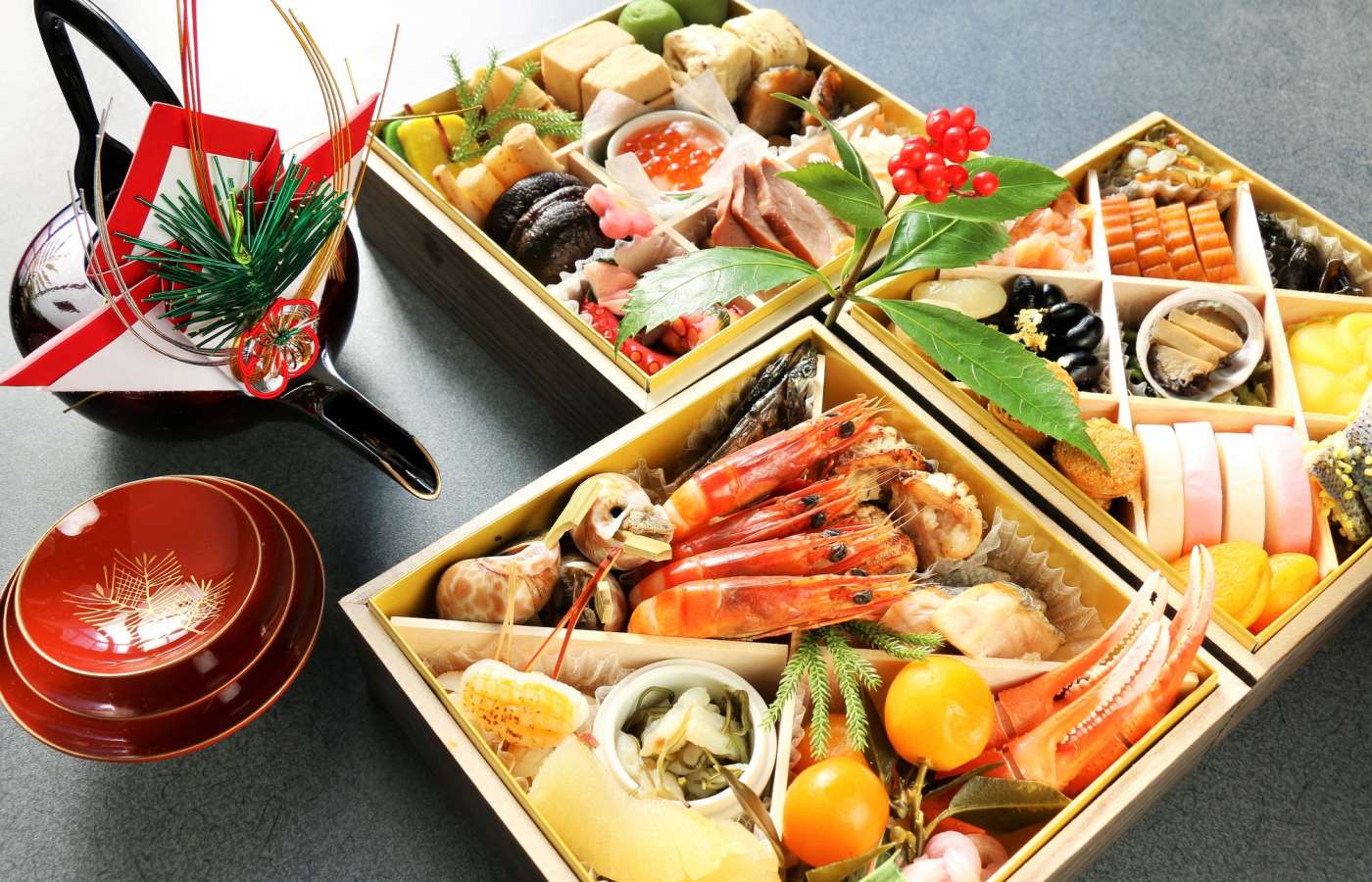
Most shops and businesses are also closed during the New Year holiday, so please plan your visit to Japan around this time accordingly. Even better, if you know a Japanese family that could accommodate you for the New Year, you’ll gain a deeper understanding of Japanese traditions and make meaningful connections. After the holiday, shops open up and huge New Year’s sales commence—make sure to budget appropriately!
Other festivities that find a new meaning
Aside from Japan’s joyous, fun-filled take on Christmas, Valentine’s Day has also been given a twist—on this day, women actually give chocolate and other gifts of affection to men! While that might sound shocking, don’t worry, Japan has created their own solution: White Day, a month later on March 14, when men reciprocate by giving gifts back to their significant others. It’s a win-win situation, for both parties involved and the chocolate and candy makers.
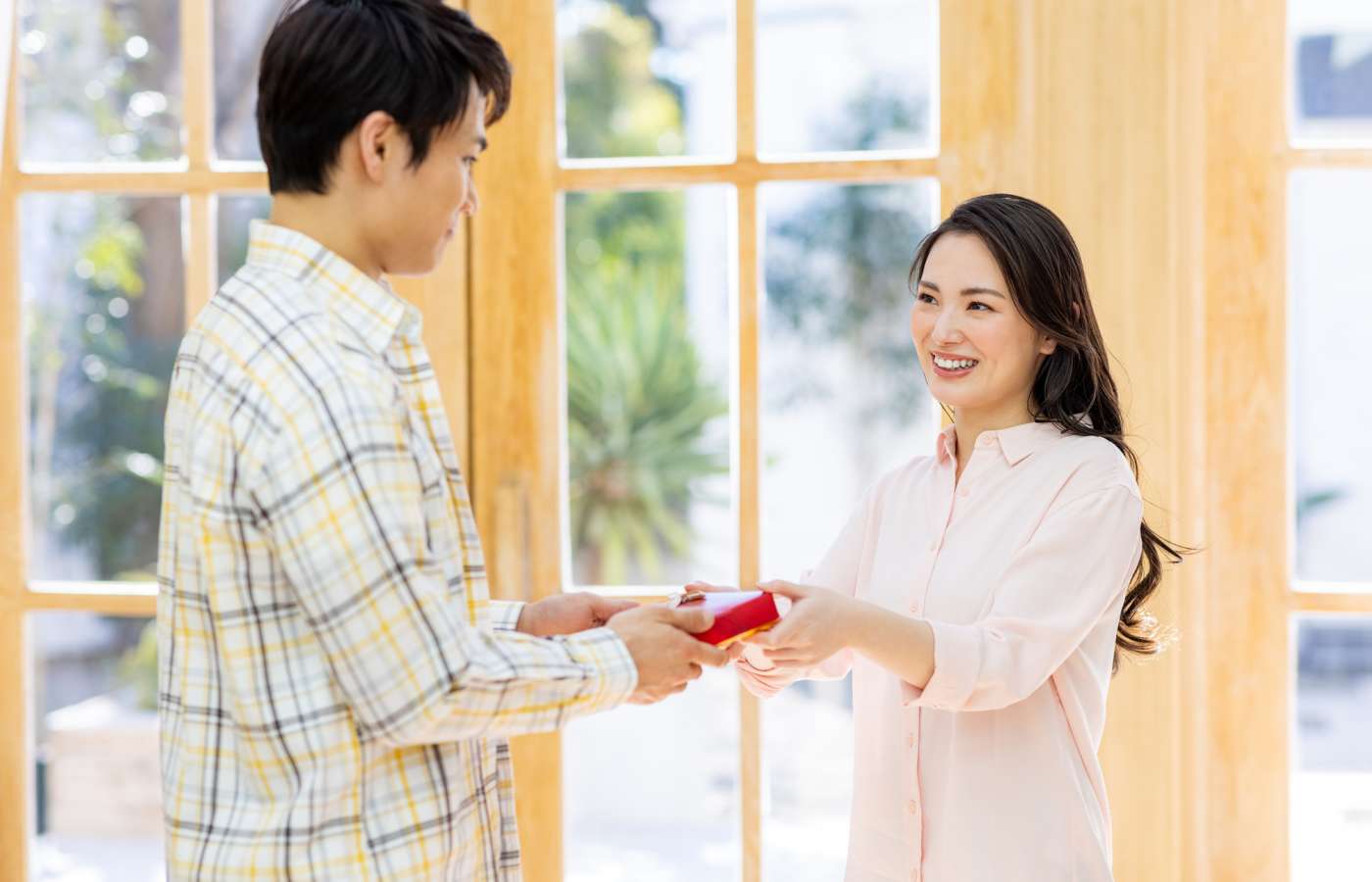
Lastly, for some people, the cherry blossom, or “sakura” viewing season in March/April is perhaps the closest thing to a “Japanese Christmas.” Friends and family gather under the trees to share delicious food and beverages throughout the blooming season. The excitement in the air is palpable, with young and old alike reveling in the enchanting pink petals falling from the trees and carpeting the ground.
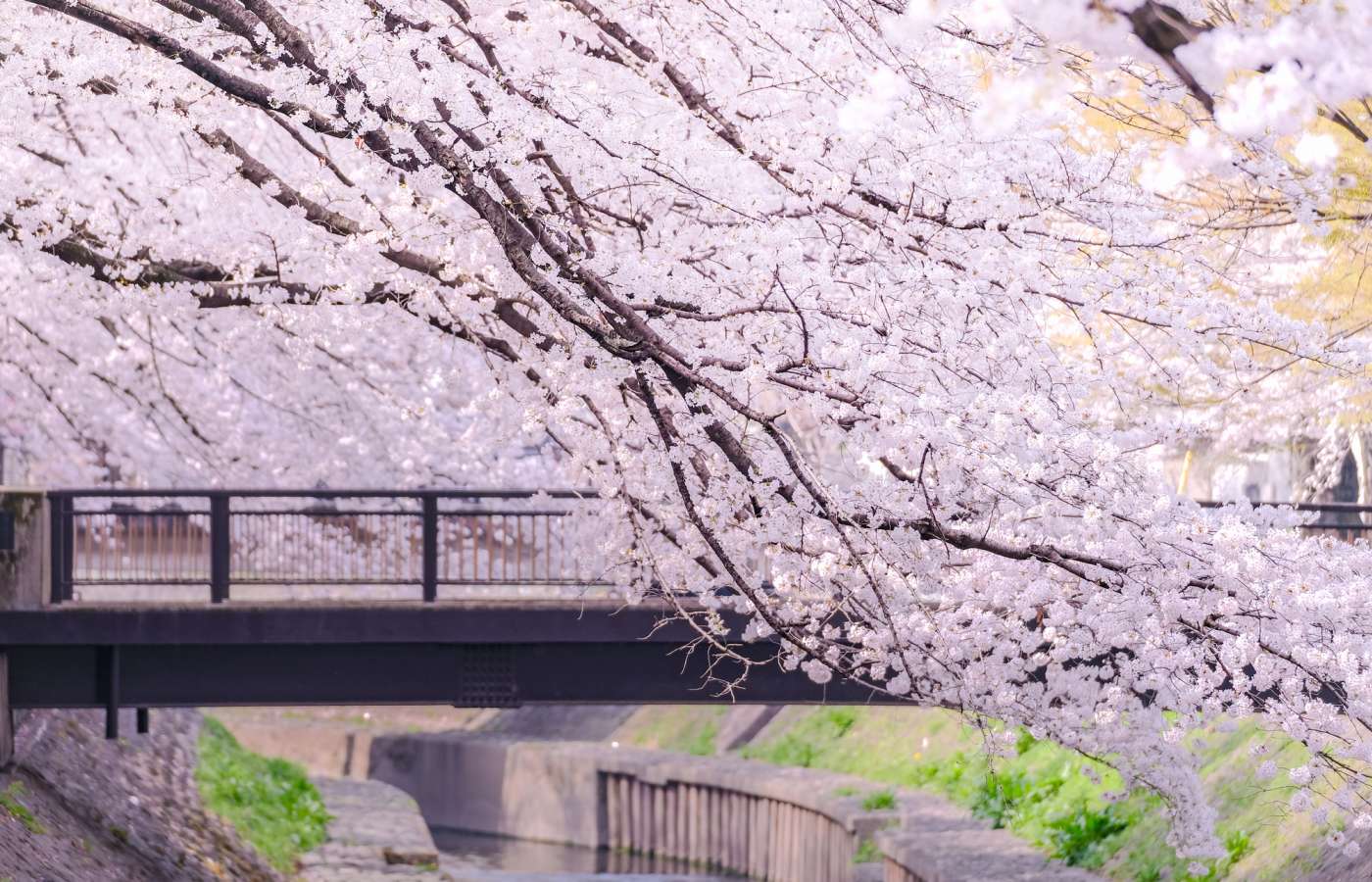
A pink Christmas? In Japan, cherry blossom season is a holiday unto itself
Which Japanese celebration or holiday are you excited to experience the most? We’re looking forward to your visit.
-
About the author
Author: Caleb DeMarais
Profile: Caleb DeMarais hails from the USA but has called Japan home for nearly 15 years. Whether knee deep in Japanese onomatopoeia, dissecting traditional craftsmanship or trying his best at rakugo puns, a fascination with everything Japan inspires his work as a writer and translator.





















































